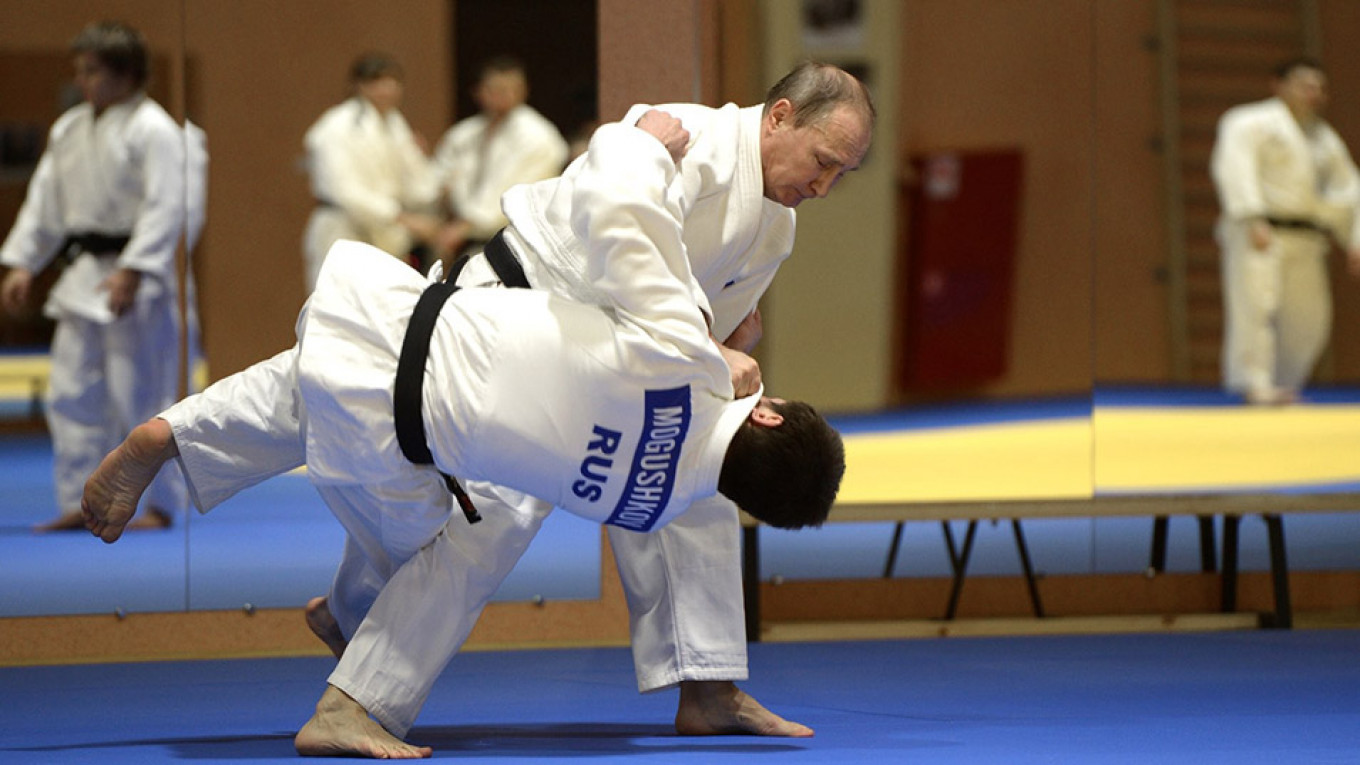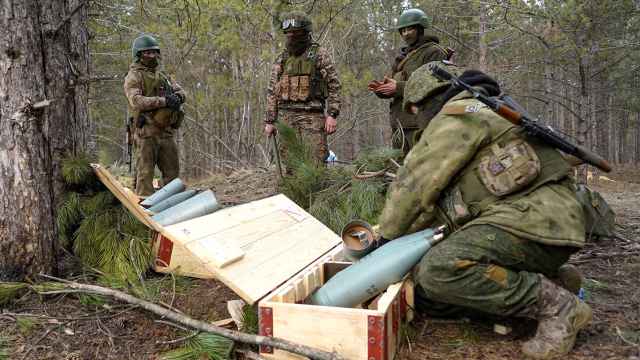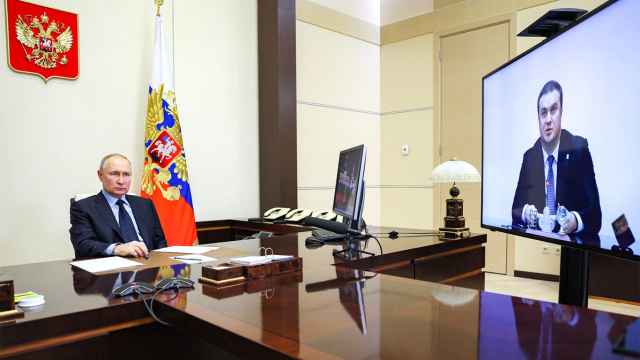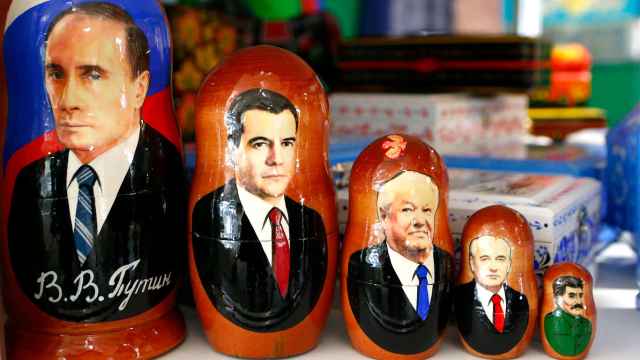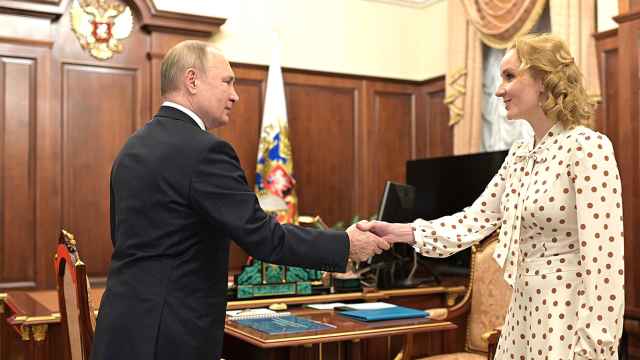Six months ago, Russia adopted a law making it an administrative offense to insult the government on the internet. The first results of its application are in, and in a majority of the cases where a court imposed a fine, Russians have been punished for insulting President Vladimir Putin.
Instead of sheltering Putin and other top officials from harsh and vulgar criticism, however, the use of the Russian lèse majesté law — the first one adopted since the Soviet Union fell apart — has resulted in a bizarre price list of insults. On average, it costs 30,000 rubles ($462) to revile the president.
After Putin signed the law in March, local police, prosecutors and courts started using it to deter disrespectful speech about all kinds of officials — mayors, governors, even the managers of a state-owned company. The Kremlin and the Russian parliament were dismayed, and in July, Putin asked his prosecutor general to monitor the emerging cases. Soon afterward, the Interior Ministry instructed police to use the law only against people using particularly insulting language and images with regard to Putin, the cabinet, the parliament and the courts.
According to a report from Agora, a group of Russian human rights lawyers, out of a total of 45 cases opened under the new law, 26 involved Putin, and 18 of these ended in a legally binding ruling imposing a fine.
According to Agora, the first case successfully prosecuted under the lèse majesté law involved Roman Vatanen from the town of Kalevala in the northwestern region of Karelia. He posted a series of memes on the social network Vkontakte describing Putin as a thief, and some of his billionaire friends as “parasites” and “devils.” He was sentenced to a 30,000 ruble fine on April 24.
The best-known conviction was that of Yury Kartyzhev in Nizhnyaya Vishera in the Novgorod region, also in the northwest of Russia, who described Putin using a vulgar reference to the sex act in a Vkontakte post that has become an internet meme. Kartyzhev was fined 30,000 rubles in April but rewarded by a huge flash mob in his support. According to the Sova Center, a Russian human rights nonprofit group, at least three people were punished for responding to that post with their own Putin insults; they likely assumed that Kartyzhev had too many supporters for all of them to be prosecuted. For example, in July, Igor Gorlanov from the Siberian mining city of Novokuznetsk was fined 30,000 rubles for quoting Kartyzhev and linking to a video of Putin explaining that Russians were free to say anything on the internet.
Though 30,000 rubles is the most widespread fine, there is some variation. A court in the Arkhangelsk region in northern Russia fined Georgy Minyayev 15,000 rubles for calling Putin a “retard” on Vkontakte, in reference to a video of the Russian president driving a truck on the newly-built bridge to Russian-annexed Crimea. It wasn't Putin’s destination that had angered Minyayev, but his failure to put on a seat belt and his likely lack of a truck driver’s license.
It cost Yevgeny Zhukov from Kurgan, just east of the Ural Mountains, 40,000 to post a taunting anti-Putin song often sung by Ukrainian soccer fans. And last week, Alexei Bychkov from Oryol in southern Russia, was sentenced to the same amount for calling Putin a “condom” in a post about ticks; Bychkov claimed the bloodsucking arachnids weren’t widespread in his part of the country before, but that their prevalence today is a sign of a declining quality of life under Putin.
The Kremlin likes to present anti-Putin protests as the whining and hand-wringing of Moscow and St. Petersburg students and intellectuals. But the people sentenced under the law have been ordinary people from Russia’s poorer regions; a couple had previous criminal convictions, the majority are blue-collar workers. The geography and demographics of the convictions show anger against Putin is bubbling right below the surface in places that routinely “vote” for the president in elections widely seen as rigged.
Asked in June why he’d signed the law into effect, Putin referred to similar laws in European countries, specifically Germany. That country does make it illegal to defame its president (though not the more powerful chancellor) — but the offense can only be prosecuted with the president’s own authorization, and that has happened only a few times in modern history. For example, a man was fined 600 euros ($654) in 2011 for throwing two eggs at President Christian Wulff.
A similar law also exists in France: In 2013, a left-wing activist, Hervé Eon, was sentenced to a suspended fine of 30 euros for waving an insulting placard at President Nicolas Sarkozy. But then the European Court of Human Rights overturned the French court’s ruling. Some of the Russians sentenced under the lèse majesté law plan to appeal their fines human-rights court, too.
No democratic nation tries to protect its leader’s image by hunting down the writers of irreverent social network posts. Authoritarian ones like Russia should drop the practice, too. The cases do nothing to extinguish popular anger. Even when human rights organizations are forced to describe the “offenses” elliptically, as is the case in Russia, the court rulings only help turn the authoritarian leader into a laughingstock. And the more people laugh, the closer the day when there are too many voices of protest to be silenced.
This article was originally published in Bloomberg.
A Message from The Moscow Times:
Dear readers,
We are facing unprecedented challenges. Russia's Prosecutor General's Office has designated The Moscow Times as an "undesirable" organization, criminalizing our work and putting our staff at risk of prosecution. This follows our earlier unjust labeling as a "foreign agent."
These actions are direct attempts to silence independent journalism in Russia. The authorities claim our work "discredits the decisions of the Russian leadership." We see things differently: we strive to provide accurate, unbiased reporting on Russia.
We, the journalists of The Moscow Times, refuse to be silenced. But to continue our work, we need your help.
Your support, no matter how small, makes a world of difference. If you can, please support us monthly starting from just $2. It's quick to set up, and every contribution makes a significant impact.
By supporting The Moscow Times, you're defending open, independent journalism in the face of repression. Thank you for standing with us.
Remind me later.



